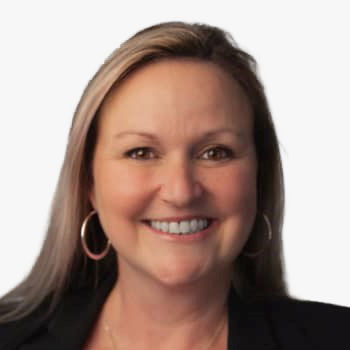NSDI Marcom
Date: 10th September 2024 // Time: 0800-1100 hrsWORKSHOP PARTICIPANTS

Moderator
Christopher H Barlow
Director
Corporate Engagement & Career Management
University of Pittsburgh, Joseph M. Katz Graduate School of Business

Alan Leidner
Board Member
NYC/GISMO
Alan Leidner completed a Masters Degree in Urban Planning from Brooklyn's Pratt Institute in 1975. He served as Assistant Commissioner in the NYC Department of Information Technology and Telecommunications (DOITT) from 1998 to 2004, in charge of the City's GIS Utility. In the Fall of 2001, he organized and managed the Emergency Mapping and Data Center (EMDC) which provided information and mapping services to 9/11 responders. Alan has also worked for Booz, Allen, Hamilton on critical infrastructure protection, and for the Fund for the City of New York heading their Center for Geospatial Innovation. He currently serves on the Board of Directors of the NYC Geospatial Information Systems and Mapping Organization (www.gismonyc.org) and has worked with the Open Geospatial Consortium on the MUDDI underground infrastructure data model, a COVID related health data model, an Emergency Location and Language Application, and a study of Extreme Heat Events. Additionally, he serves as an advisor to Utility Mapping Services (USMI), and to New York University on their UNUM - NYC infrastructure mapping project. Mr. Leidner was a recipient of the 2001 NYC Sloan Public Service Award and the 2002 ESRI Presidential Award. Among other writings, Alan's "Geo-Info CONOPS" article was published by GeoWorld Magazine in October, 2007. In 2022 a Smart Cities chapter he co-authored with OGC's George Percivall, was published in the Springer Handbook of Geographic Information, 2nd Edition.

Joshua Delmonico
Executive Director
US Federal Geographic Data Committee
Mr. Joshua Delmonico serves as the Executive Director for the Federal Geographic Data Committee providing the leadership, coordination, and communication to promote the development, use, sharing, and dissemination of geospatial data nationwide. In this role he provides executive leadership for the coordination of U.S. federal geospatial activities in collaboration with the 32 FGDC member Federal Agencies and OMB to implement the Geospatial Data Act and conduct strategic planning and visioning for the implementation of the National Spatial Data Infrastructure (NSDI). Previously, Mr. Delmonico led several Geospatial programs for the Department of Defense where his portfolio included architecture, engineering, standards, testing, enterprise system development, modeling and simulation, 3D, AR/VR, and artificial intelligence. He has a B.S. in Biology from the State University of New York at New Paltz (1994) and a M.S. in National Resource Strategy from the Industrial College of the Armed Forces (2010). He lives in Alexandria with his wife and two boys.

Ken Shaffer
Deputy Executive Director
US Federal Geographic Data Committee
Ken Shaffer is the Deputy Executive Director for the Federal Geographic Data Committee, administered by the U.S. Geological Survey. His work includes the strategic planning and development for the National Spatial Data Infrastructure, Federal geospatial policy, interagency geospatial initiatives, and non-Federal constituent collaboration. Ken's career has been divided between the private, State, and Federal (civil and military) sectors, and has consistently included roles in interagency and multi-tiered geospatial program coordination. A geographer by degree, Ken has 37 years of experience in the geospatial profession.

Kim Hansen
Geospatial Marketing Director
Woolpert

Becci Anderson
Chief of User Engagement
National Geospatial Program, USGS
Becci Anderson is the Chief of User Engagement with the USGS National Geospatial Program, leading a team of liaisons from across the country who cultivate collaborations, provide outreach and education, and foster partnerships for The National Map. She holds a Master of Science degree in geography from Oregon State University, and serves on the Board of Advisors for the Oregon State University College of Earth, Ocean, and Atmospheric Sciences. Beccihas extensive experience in national and international project coordination, outreach and communications, strategic planning, and program management and governance, with expertise in GIS, cartography, and spatial data analysis. Throughout her career, Becci has had roles in numerous publications, initiatives, and programs such as the Alaska Mapping Executive Committee, USGS 3D Hydrography Program, FGDC NGDA Themes, Arctic Council CAFF Biodiversity Monitoring Programme, Arctic Spatial Data Infrastructure, Interagency Arctic Research Policy Committee (U.S. Arctic Research Plan: FY2017-2021), U.S. Air Force GeoBase Program, and The Atlas of International Freshwater Agreements.

Sheila Steffenson
CEO
1Spatial Inc.
Sheila Steffenson is a highly experienced GIS and Data Management specialist with over 35 years of experience in the GIS industry (both in the public and private sectors). The majority of her career (23 Years) was spent with Esri, starting as a technical resource, then moving quickly to an account management role. After 3 years she was named Manager for the South-Central US Region and grew the organization from 5 to 50 staff before moving to DC to establish and grow the Federal Sciences Team. She joined 1Spatial over 8 years ago, taking on the role of CEO to build out the knowledge and use of the 1Spatial Data Management solutions across the Americas. In this role, she has grown the organization on "this side of the pond" significantly while also overseeing the organization's operations and overall success, from client satisfaction to P&L. She is a strong promoter of the need for a true NSDI based upon technology innovations and collaborative efforts that can make a major impact upon its success.
WORKSHOP PURPOSE
Over the past three decades, and at great expense, the NSDI has provided nationwide geospatial data, tools, and supporting infrastructure resources to help improve policy and decision-making across government, the private sector, and citizenry. However, this significant resource investment borne largely by local, State, Tribal, and Federal government and industry is little known, and therefore often under resourced. With the growing diversity of challenges facing the nation, availability of current, accurate location information is vital to National Development and sustainability.
This workshop brings together Federal and other government and industry public affairs and marketing professionals to raise awareness of the NSDI. The goal is to identify ways in which we can drive awareness and investment in the NSDI through improved communication of the value and ROI of the NSDI and geospatial within their organizations, with the public, and with Congressional Budget staff and Congress.
DESIRED OUTCOMES FROM THE WORKSHOP
- Baseline the history, development and success of the U.S. NSDI
- List and categorize critical stakeholders for an NSDI
- Define and categorize value derived from the NSDI
- Identify possible case studies to support communicate the value and ROI from the NSDI
- Discuss how to pool resources (people and financial resources) to continue to advance the raise awareness
PRE-WORKSHOP SURVEY
To support inform and direct the workshop, including the breakout sessions, we have created this survey Qualtrics Survey | Qualtrics Experience Management. Please complete the survey ahead of the workshop. It should take no more than 5-10 minutes to complete. Results will be shared during the workshop and will be shared in the conference proceedings.
WORKSHOP APPROACH
This workshop is designed to be interactive between panelists and attendees of the session to identify and recommend approaches to illustrate the value of the NSDI from differing stakeholder perspectives. Breakout groups will be formed to generate ideas/recommendations on key stakeholder value topics, as well as priority use cases. Panelists will serve as facilitators and contributors to break out groups and will lead discussion on findings and next steps for NSDI Marketing and Communications.
AGENDA
| Time | Topic | Speaker/Format | Run |
| 08:00 – 08:10 | Welcome, Participant Introductions, & 2023 GeoGov Session recap | Mark Reichardt | 10 min |
| 08:10 – 08:30 | History of the U.S. NSDI | Ken Schaffer | 20 min |
| 08:30 – 08:40 | Workshop Format Introduction & Survey Summary | Christopher Barlow | 10 min |
| 08:40 – 09:00 | Preliminary USGS use case example | Becci Anderson | 20 min |
| 09:00 – 09:25 | Breakout 1: Stakeholders paired to Value | Breakout groups: generate list of stakeholder groups and value statements | 25 min |
| 09:25 – 09:50 | Group Report Back: review lists as a broader group | From facilitators consolidate list of stakeholders and categorize values | 25 min |
| 09:50 – 10:10 | Breakout 2: shortlist 1-2 case studies | Breakout groups: Brainstorm potential case studies that align to the stakeholders and values | 20 min |
| 10:10 – 10:20 | Group Report Back on case studies | Breakout leaders | 10 min |
| 10:20 – 11:00 | Panel Discussion: what are needed resources (people or financial) to communicate the value message and case studies? | Panelists will share insights and engage with attendees of the session to identify recommendations and next steps. | 40 min |